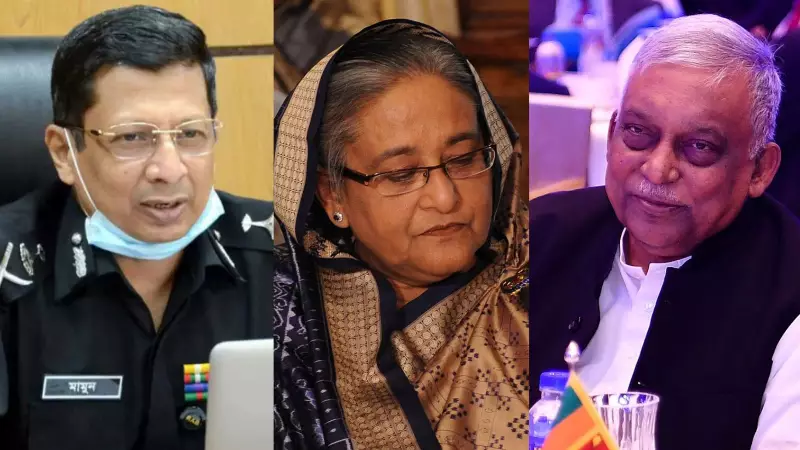
A special tribunal in Bangladesh is poised to deliver a landmark verdict today in a high-profile crimes-against-humanity case targeting the country's ousted prime minister, Sheikh Hasina, alongside her former home minister, Asaduzzaman Khan Kamal, and ex-police chief, Chowdhury Abdullah Al-Mamun.
City on Edge Ahead of Historic Ruling
The capital, Dhaka, was gripped by tension on Sunday following a series of crude bomb explosions that rocked the city. These incidents occurred just hours before the International Crimes Tribunal (ICT) was scheduled to announce its judgment. While police confirmed no casualties from the blasts, the Reuters news agency reported, the unrest has left the city unusually quiet and deserted.
This recent violence is part of a broader pattern of instability. Authorities have logged more than 30 explosions in recent days, coupled with multiple arson attacks targeting buses in the capital and other districts. In response, a significant security presence, including personnel from the Border Guard Bangladesh, police, and Rapid Action Battalion teams, has been deployed across Dhaka, Gopalganj, and neighbouring areas.
The Charges: A Five-Point Accusation
The case stems from the government's brutal crackdown on the anti-discrimination student movement that took place in July and August of 2024. The prosecution has built its case on a massive 8,747-page formal charge document, which includes seized evidence, detailed victim lists, and references.
The charges against the three accused are comprehensive and severe, broken down into five specific counts.
Inciting Violence and Dereliction of Duty
The first count alleges that Sheikh Hasina made incendiary remarks during a press briefing at Ganabhaban on 14 July 2024. Prosecutors claim these statements triggered coordinated attacks on students and civilians by law-enforcement personnel and ruling-party activists. The tribunal is asked to determine if the accused instigated or permitted these attacks and failed in their duty to prevent or punish acts of murder, attempted murder, and torture.
Orders for a Lethal Crackdown
Among the most serious allegations, Hasina is accused of directing the use of helicopters, drones, and live ammunition to suppress the protests. The prosecution contends that former home minister Asaduzzaman Khan Kamal and ex-police chief Chowdhury Abdullah Al-Mamun relayed and executed these orders through the security chain of command. These actions are presented as crimes against humanity through superior orders, aiding, and conspiracy.
Specific Incidents of Fatal Violence
The charges also detail specific deadly incidents for which the trio is held responsible. This includes the fatal shooting of a student named Abu Sayeed outside Begum Rokeya University in Rangpur on 16 July 2024. Prosecutors assert this killing was carried out under directives from the top leadership.
Furthermore, they are charged in connection with the shooting deaths of six students in Dhaka's Chankharpul area on 5 August 2024, an operation allegedly conducted with their knowledge and command.
The final count relates to the Ashulia killings on the same day, where six men were allegedly shot, with five of them burned and the sixth set alight while still alive. The prosecution claims these brutal acts were committed with the involvement, approval, and direction of the accused.
A Clash of Legal Narratives
The legal battle presents starkly opposing views. Chief Prosecutor Mohammad Tajul Islam has confidently stated that the state's evidence is as strong as the Himalayas, insisting every charge is supported beyond a reasonable doubt.
In sharp contrast, defence lawyer Md Amir Hossain has dismissed the case, labelling the allegations as false and fabricated. He argued that there is no document proving Hasina directly ordered any killings and suggested that a separate group was responsible for the violence.
As the nation awaits the tribunal's decision, the verdict is expected to have profound implications for Bangladesh's political landscape and its reckoning with past events.






